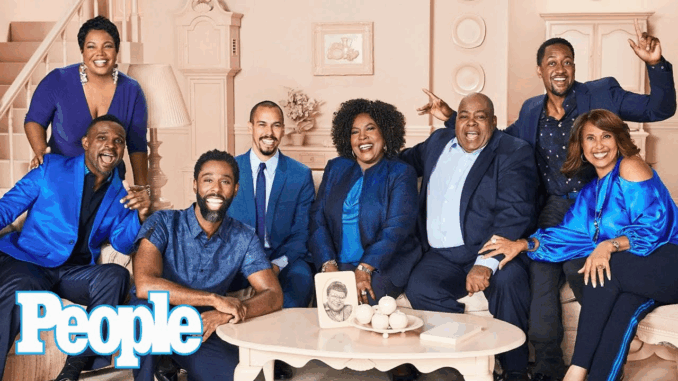
In a television landscape dominated by white-centric narratives in the late 1980s and early 1990s, Family Matters emerged as a bold, refreshing sitcom that centered on an African-American family in a relatable, middle-class Chicago setting. Over its nine-season run, the show not only entertained millions with its mix of slapstick and sincerity but also carved a significant place in TV history.
This article examines the cultural legacy, social impact, and ongoing relevance of Family Matters, and how it helped reshape what American television could be.
1. A Pioneering Representation of Black Middle-Class America
One of the most groundbreaking aspects of Family Matters was its portrayal of a stable, loving, middle-class Black family. At a time when many television portrayals of African-Americans were limited to stereotypes, the Winslows offered a counter-narrative.
Carl Winslow, a police officer, and Harriette, an elevator operator turned security consultant, represented hardworking, ethical parents. Their children navigated the same adolescent issues faced by all teenagers, bridging a gap between cultural specificity and universal experience. This nuanced portrayal challenged perceptions and provided representation that was sorely lacking on network television.
2. A Platform for Conversations on Race, Gender, and Justice
While Family Matters excelled as a comedy, it frequently addressed serious social themes, particularly race and justice. As previously mentioned, episodes like “The Gun” and “Fight the Good Fight” tackled issues of violence and educational inequality.
Another powerful moment came in the episode “Good Cop, Bad Cop,” in which Carl must confront a fellow officer who racially profiles Eddie. The emotional tension and Carl’s moral dilemma highlighted the complexities of being a Black man in law enforcement. Few family sitcoms had the courage to address police misconduct from an insider’s perspective at the time.
The show’s ability to balance these weighty issues without alienating its family audience was part of what made it so enduring and relevant.
3. The Steve Urkel Phenomenon: A Cultural Icon Beyond the Screen
Steve Urkel was not only the breakout star of Family Matters, but he also became a pop culture juggernaut in the 1990s. From his high-pitched voice and suspenders to the catchphrase “Did I do that?”, Urkel permeated everything from breakfast cereal to Halloween costumes.
More than just comic relief, Urkel became a symbol of how individuality can triumph over social rejection. He represented the underdog, the misfit who refuses to conform. In doing so, Urkel resonated deeply with audiences — especially kids and teens who felt marginalized.
Jaleel White’s performance brought both depth and humor to the character, and his presence helped Family Matters remain relevant even as television trends evolved.
4. Lasting Influence on Television and Black Sitcoms
Family Matters paved the way for a host of successful Black-centered sitcoms, including The Fresh Prince of Bel-Air, Moesha, Sister, Sister, and later, Black-ish. The show’s success demonstrated to networks that diverse stories could attract mainstream audiences without sacrificing quality or relatability.
Its blending of genres — family comedy, science fiction, drama — also set a precedent. Few shows at the time dared to mix heartfelt emotion with fantasy in the way Family Matters did. That creative risk is something we now see regularly in shows like Atlanta, Abbott Elementary, and even Stranger Things.
5. The Enduring Love from Fans: Reruns, Streaming, and Reunions
Even decades after its original run, Family Matters continues to enjoy a dedicated fanbase. Thanks to syndication and streaming platforms, the show has found new audiences among Gen Z and millennials revisiting 90s culture.
In 2017, the cast reunited for a Entertainment Weekly special, sharing emotional reflections on their time together. Fans are still calling for a reboot or continuation — a testament to the show’s lasting emotional resonance.
The themes of family, love, acceptance, and perseverance are timeless, ensuring that Family Matters will remain relevant for years to come.
Conclusion
Family Matters was more than just a sitcom. It was a cultural touchstone, a trailblazer for representation, and a heartfelt exploration of identity, justice, and love. From its pioneering depiction of a Black middle-class family to its role in shaping pop culture, the show left a legacy that continues to inspire.
At a time when diversity, equity, and inclusion are finally receiving the attention they deserve in media, Family Matters stands as proof that these values have always mattered — and that when done authentically, they resonate across all boundaries. As Carl might say with a warm, fatherly grin, “As long as you’ve got family, everything else will fall into place.”
